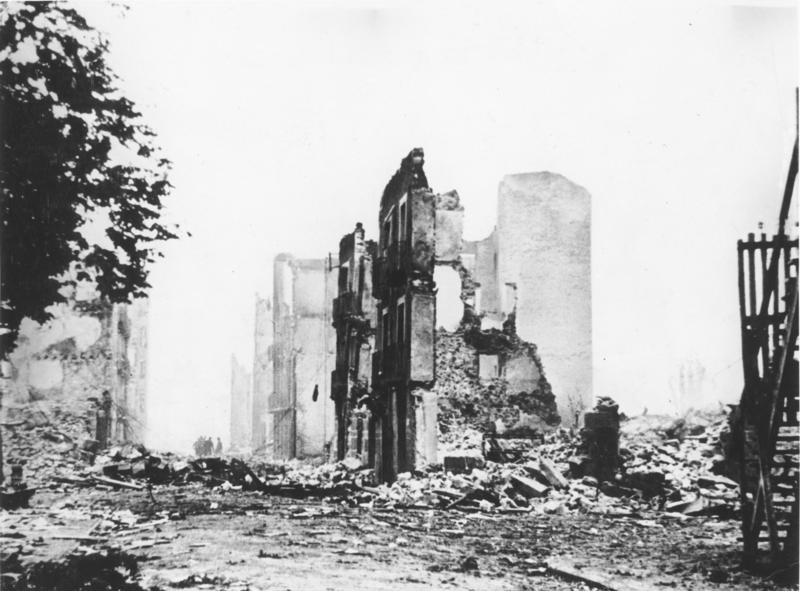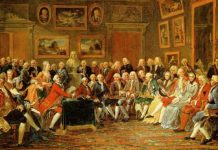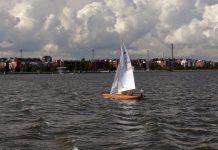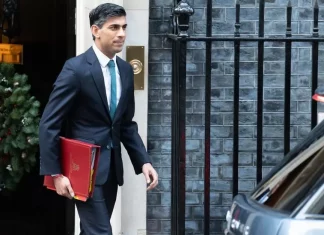I have been a student of the Great War since my school History Society days , I read Churchill’s World Crisis at fourteen, no I did not treat it as gospel ,indeed there is no gospel on this crime against humanity, nor was I a school swot, I was chucked out of classics to make wooden fruit bowls the same year. Mind you the woodwork shop was a great place for the thickos to get a smoke. However after 50 years of study and the accumulation of over 1000 antiquarian books on the subject I feel qualified to proffer some observations , perhaps more so than the host of celebrities jumping on the centenary anniversary band wagon, many of whom appear embarrassingly ignorant of their subject. Until 20 years ago I restricted most of my interest to the prosecution of the war militarily ,sometimes leading battlefield tours sometimes following , particularly enjoying field lectures by friend and erstwhile military colleague the irreplaceable Richard Holmes.
The last one I organised was for 20 landowners and their wives on the Somme , I lectured on strategy and another erstwhile colleague Nigel Farage delivered a string of excellent anecdotes on deeds of daring do to bring that dreadful battle alive. The television is crammed with such anecdotes now and very good TV it makes. It is also time the story was told , WWI formed no part of the formal history curriculum for my generation, I suspect it was too awful and recent to dredge up, few participants would talk of it in the autumn of their years, who could blame them?
Yet that very avoidance has led to gaps in our knowledge, or at least an ambivalent attitude to the outbreak. Modern politicians most of whom have no understanding of history even if they have an interest , you can almost hear Cameron or Milliband asking a flunky before a speech on the Great War to remind them of the dates. A particular vein of weakness comes from an unusual source. Mises Institute essays are usually the most informed and original of anything one can find to read today on matters economic but they continually fall short on Great War political history . I have read long essays about missed peace opportunities from 1917 to1918 with no mention of Ludendorff , this is akin to writing an essay on WWII without mentioning Hitler, one offering suggested naval blockade was a new Great War phenomenon yet referred only to Royal Navy blockade with absolutely no mention of unrestricted submarine warfare, one could be forgiven for imagining the Germany of 1914 consisted entirely of men in holy orders brutally invaded by a militaristic.

I suspect as they are mainly written by Americans often with German ancestory with Anglophobic leanings deprived of access to anecdotal assessment of its cause they are bound to fall back on the library for that scourge of the historical essay, an academic opinion of yesteryear.
I would like to touch on one or two things of which I have heard little, if any thinglk at all. Why did everyone rush off to war so eagerly? In no way was it a reluctant war as was WWII when the musket was so reluctantly picked up. Everyone it seemed was spoiling for a fight. The mood of the antagonists was not something drummed up over night , it had been brewing for years. I do not intend to cover here the implications of treaty responsibility , particularly the Belgian guarantee , this has been covered recently by Anthony Scholefield of Futurus and is the best essay of its kind I have ever read on the subject. ,
What therefore brought the world’s greatest empire to some one else’s war ? Moreover a democratically governed empire with a free press, albeit a press dominated by Lord Northcliffe. Likewise a democratic republican France , socialist in its inclination, Germany and Italy , an original axis member, who changed sides in1916( no more jokes please) were new countries about 100 years younger than the United States , a fact usually missed by today’s politicians and school children alike. Germany was akin to a strapping teenage youth and since the dismissal of Bismarck a youth with no parental guiding hand. A growing country economically and militarily . Prussian leadership arrogant, bullying and militaristic was akin to Zululand , or the Japan of the Samurai , with technologically advanced ordnance . France was , underneath the artistic, gay enlightened Belle Epoch, still fearful and resentful post Franco Prussian war. Yet detailed research finds no craving for the return of Alsace Lorraine , not to the extent of risking war, France a rural economy not industrial or militaristic .The American war of Northern Aggression had proved beyond doubt wars are won on the industrial front. The British Empire on which the sun was setting was recovering from a stupid and expensive South African war , unpopular at home as well as abroad .
I venture to suggest the Great War came through an accumulation of the most extraordinary fateful circumstances. I offer them for consideration by LA readers who as ever will already have an informed opinion. The volatile explosive mix therefore consists of five main players . A tired but prosperous laissez faire British Empire guilty of some ill advised military adventures the Boer war being the most appalling example, the empire was based on trade and ideology . Those that doubt it would do well to check the numbers of British soldiers and civil servants in service throughout the empire . Interesting numbers compared with the military powers of the day and dare I say it current US military personnel and infrastructure . No, not an empire on a war footing. Russia on the eastern front , politically unstable , ramshackle , victim of a disastrous war against Japan , a relatively recently assassinated Tsar and revolution A warning of things to come, hardly a war machine poised to pounce. The Austro Hungarian Empire , a complete anachronism , detached from the real world and an army reflective of it. Let me say though if I had a time capsule Edwardian Vienna would be one of my first ports of call , then as now a great city for the bon vivant and lover of art and music. Arguably all these protagonists were dysfunctional in their own way.
Who then were the key personalities in this deadly European danse macabre, who cast the die in the ten years before? Foremost was King Edward VII ,tri lingual Francophile and brilliant natural diplomat. The Europe of 1903 , the year of that fateful European tour ,the effusive visit to London of French president Loubet, the birth of the entente cordiale was in fact against expectation .The Boer war was deeply unpopular with Europeans and coupled with colonial friction intensified by the Fashoda incident France was not at all well disposed to the British nor indeed have they ever been. The personal popularity of King Edward which began with his visit as a young Prince of Wales where his charm and faultless command of the French language , the quickest route to the French heart was re enforced .This visit is probably the most successful diplomatic disaster on record, amazingly feted as a triumph today with all we now know. If only the king had been less brilliant, had his French been weak ,had his astonishing command of the common touch so beloved of Kipling been less sure and finally would that he had felt a stronger tie to Palm and Pine than a fascination for European intrigue perhaps then an unlikely relationship strong enough to suck the British Empire into the worst conflagration up to that point in global history might have been avoided.
I am as weak as the next man, sit me down in front of a Baron d’agneau de Pauillac aux morilles and an 1877 Haut Brion in the company of Saint- Saens and Massenet add the sexy Countess Wolkenstein- Trostburg perhaps with a little ‘mains baladeuses sous la table ‘ and I would have been bawling vive la France with every one else. Surprisingly the tour of 1903 was not inspired by the Balfour administration. It was supposedly a private initiative vaguely ratified at various stages by London after the event ,not untypical of Arthur Balfour and his nervous political colleagues . Fascinatingly in Balfour’s authorised biography almost no mention was made of the Entente save it was official government policy , yet a whole chapter was devoted to the Anglo Japanese treaty, this was written in the late 1920’s.
So the entente was born. What is an entente cordiale? A sort of woolly commitment , as has been said many times before , all the disadvantages of a treaty with none of the advantages. This disastrous turn of events was compounded by another less well known figure to the public the arch Francophile Sir Henry Wilson. A soldier who conducted military negotiations with the French high command on an unofficial basis , imagine a whole European strategy with millions of lives at risk based on a nod and a wink . By1914 no one in the Asquith government knew who had committed what to whom. The Liberals were appalled by the idea of war and hostile to it to just weeks before outbreak. The British Empire was doomed to make the same mistake they made in South Africa a useless , unnecessary , expensive war to no end. The whole thing was amateur night on an epic scale , worse the Germans had no idea ( neither did the French ) if we were in or out until the expeditionary force actually landed. In short there was no deterrent effect on the axis powers. The major card, the British fleet , played no part in the potential prevention of a war from which no one could benefit , yet the cry was ‘ hang the Kaiser ‘ in 1918 not hang the entire 1914 cabinet and HM Opposition as it should have been. Lord Ponsonby , Edward’s secretary commented at the time that any Foreign Office clerk could have drafted a treaty ,but the king produced a rapprochement . Well, yes but not something understood by the Prussian mind , Chancellor Von Bulow thought it absurd and of no consequence and told his emperor as much. Any possible deterrence was still born.

It is not the point here to discuss the triggers for war, but the systematic preparation of the electorate for it , two serious diplomatic incidents in Morocco , Tangier 1905 and Agadir 1911, permanent crises in the Balkans, colonial squabbles with France culminating in an Anglo French convention started to line up public opinion with the fake choice of being in the French or German camp, the neutral option was never mooted. The French presidential visit and French naval visit of 1905, were part of the softening up process , completely over the top almost hysterical by British standards, whilst the Kaiser did his best to shoot himself in the diplomatic foot on every occasion . To mobilise the civilian population in a democratic society it is essential to bring the people with you. They bring the press , which usually but not always follows public opinion. The rather ephemeral treaty obligations on Belgian neutrality were something of a party political afterthought ‘plucky little Belgium ‘ the advertising sound bite of the day was designed to appeal to the British innate sympathy with the under dog . But take it up with Anthony Scholefield when you have read his piece. There were strong pro German political figures in Britain in those fateful years, Lord Haldane German speaking government minister and influential aristocrat Lord Landsdown were not alone in suggesting a rapprochement did not have to be exclusive to France . Bear in mind those who still claim the war was inevitable must remember Holland , Denmark ,Scandinavia, Spain all stayed neutral , I have never accepted any war is inevitable for the UK unless foreign soldiers land on the beach.
Let us pause awhile and look at the Kaiser ,the man. Grandson of Queen Victoria ,English wife, nephew of King Edward an Anglophobic Anglophile ,obsessed with uniforms and things military , and leader of a country second in the world pecking order, unstable , he probably suffered an inferiority complex arguably not based on a withered arm but on not being British .
Let me quote here from his speech on the eve of the Boxer rebellion.’ There will be no quarter, no prisoners will be taken as a thousand years ago, the Huns under Attila gained for themselves a name that still stands in tradition and fable, so you may imprint the name of a German for a thousand years on China, and so deeply that never again shall a Chinese dare so much as look askance at a German’.
Admittedly even his senior advisors were shocked , but it might explain the wilful destruction of the mediaeval library at Louvain in 1914 ,the invention and use of poison gas in 1915 ,the flame thrower, and the execution of Edith Cavil , the Hun was never far from the surface . I know the war dragged us all down eventually to the same bestial level. As Clausewitz would have it total war, there is no other kind, incidentally for better or worse a lesson very quickly learned in the second part of the Great War by Winston Churchill , too quickly ? An appreciation of the misplaced brilliance of Edward ‘s is his complete understanding of his wayward nephew. Quote 1906 ‘but he is even more cowardly than vain, and because of this, he will tremble before all these sycophants when, urged on by the General staff that will call on him to draw his sword in earnest. He won’t have the courage to talk some sense into them, but will obey them cravenly instead. It is not by his will that he will unleash a war, but by his weakness.’
There was of course, an additional dynamic to add to mix of flawed personalities, the new logistics of modern war. Railways and great ordnance in the field, the military doctrine that first strike is essential. History paradoxically would indicate this is not true, Germany and Japan in WWII, or Korea a few years later, but it was the prevailing view of militaristic autocracies at the time. If I may wear my military strategist hat for just a moment, factors other than a combination of deeply flawed personalities and military doctrine are also culprits. There were at the time no modern communication techniques available, there was no ‘hot line’ . In golfing parlance there was no way to play out of the bunker. Nor were there personal relationships , no one knew each other, Grey had never left Great Britain ,the Tsar Russia, nor were there any Franco Austrian relationships or lasting pacification of the Balkans , indeed can there ever be ? The great monarchies were linked by blood and marriage but the death of Edward VII lost any personal warmth or fellow feeling which history shows even Wilhelm to be susceptible.
Finally to put a few pseudo naval and military arguments to bed, the command of the channel ports by Germany would not have proved a disaster ,this was demonstrated by the outcome of WWII when the axis powers held them for 4 years. I believe there was a genuine offer to limit the war to mainland Europe by Germany which could have left Great Britain and America to broker a peace in 1916 when a stale mate would have been apparent to all concerned. Without any dispute about the British expeditionary force’s contribution it was not critical , the men and ordnance at that point was in no way pivotal , the Miracle of the Marne’ would still have saved Paris . A mobilised British fleet would have ensured the axis stuck to their word on the channel ports and had massive sway in peace brokerage . Even a bad peace would have preserved the British Empire ,millions of lives, there would have been no WWII. For dissenters a walk of the battle fields and contemplation of the world today one must argue , admittedly with the benefit of hindsight, how could it have worked out worse for the UK? We did not even secure the gratitude or respect those earlier Francophiles so inexplicably craved. The free world was left to the leadership of the USA patently not ready then nor is it today .The victory speech to the French Parliament by Clemenceau in1919 mentioned the British Empire not at all nor did they fly many British or Dominion flags, although the Stars and Stripes were in much evidence. Yet Australia suffered more casualties in 1918 than the Americans who still to this day are convinced they won the Great War although no tank or artillery piece was manufactured in America during the war. President Poincare was even furious English was an official language of the peace conference.
Extraordinarily when the whole repeat performance came around again we found ourselves fighting the French in North Africa , Syria and the Levant having been abandoned by rescued French soldiers from Dunkirk who demanded repatriation, all this of course is carefully edited out of the modern school history books both sides of la Manche.
For those , like advocates at the time argue that it was a matter of national honour, which was in the end the argument that carried the day, let me offer some further options. The alliance of France and Russia put millions of soldiers under arms,quite enough to meet a deterrent requirement under normal circumstances. It could never have been possible to engineer a treaty to allow for the bizarre events of 1914 . The German alliance with Austria was suicidal as was the Franco Russian . The British should have made their position unequivocal very publicly in 1903 , under no circumstances would the Empire go to war unless it was directly threatened. The French , Germans , Austrians and Russians must go to the devil in their own way. By 1914 the dreadnought race was over won by the British ,it was a non issue. There was no British Army by the standards of mainland Europe , it was an Empire police force at most. Winston Churchill mobilised the fleet , rightly so, but totally unlike a military mobilisation in could be stopped dead in its tracks. The unspoken pragmatism of earlier years, basically British navy Franco Russian soldiery was the game play. Even if the Germans eventually won on land they would have been stretched to breaking point by a Pyrrhic victory , indeed such a victory enjoyed by the Allies in 1918 . A casual glance at modern history shows with one or two exceptions shows war victories are usually so ,in point of fact my dissertation at The Royal College of Defence Studies was based on this thesis. There were those who favoured war under any circumstances , there always will be, it is sadly the nature of man. The Prussian high command whose whole raison d’etre was war , elements of the Austro Hungarian Empire, professional soldiers and sailors in England , Fisher, Roberts, Wilson all this coupled with a complete misunderstanding of modern total war by political leaders of the day.
A flawed theory of the left is that it was a war of capitalism, absurd of course , the one thing feared by the capitalist is any expensive , hopeless, meaningless war. The Bank of England begged the government almost on blended knee to keep out under any circumstances their view was it would finish London as the only serious centre of world finance, which it did. Returning to the ‘ honour ‘ argument in spite of some bellicosity over Schleswig Holstein from Lord Palmerston, real politic is the only option, as indeed it was when the UK abandoned Poland in 1945, Hong Kong a generation later.
Nor do I take the view that those brave soldiers and seamen died to no purpose. Once the politicians had created the cataclysmic disaster they were personally bound by honour to play out the game to the end, that Edwardian generation were a great generation perhaps matched only once in the history of Great Britain by their children in the second. To suggest they died for nothing is to denigrate their memory they died honourably yet again to rescue political failure. A total commitment to the ideal of a Christian Empire was held across all classes, death in pursuance of a noble ideal is never wasted, an unnecessary ,badly prosecuted war in no way diminishes brave men’s sacrifices.
So what is all this to the libertarian ? Excuse me for being parochial but war is always the arch enemy of personal freedom. The pre Great War British and American societies by today’s standards were enormously liberal . Rules ,regulations, identification documents, that abomination conscription , the inevitable rise in power of the petty officialdom, the abandonment of principles of law. All these are claimed as vital for the common good, moreover deceitfully claimed as
temporary, it started in all its ghastly evil in August 1914 .
I am uneasy about the bellicosity shown today by the west to Russia , the blustering nonsense from those with no military experience or indeed sons in the army, something at least that could never be said of the Edwardian political potentates . Great Britain and the EU are paper tigers ,no armies or navies, and the Americans are led by a man capable of this sentence quote ‘Sanctions are beginning to bite plenty good’ . He clearly could not construct an attack order understandable to the largely English speaking NATO command structure. It is less likely we will experience a shooting war 100 years on ,more probable an energy or financial war perhaps a mutation of one. The sanctions of which Obama and Cameron boast do not hurt them. The priministerial and presidential salaries arrive every month they do not depend on exports to Russia or energy supply but many of us do . International posturing and swaggering eventually leads to trouble , I would make the study of modern history compulsory for world leaders it might stop it repeating itself.






